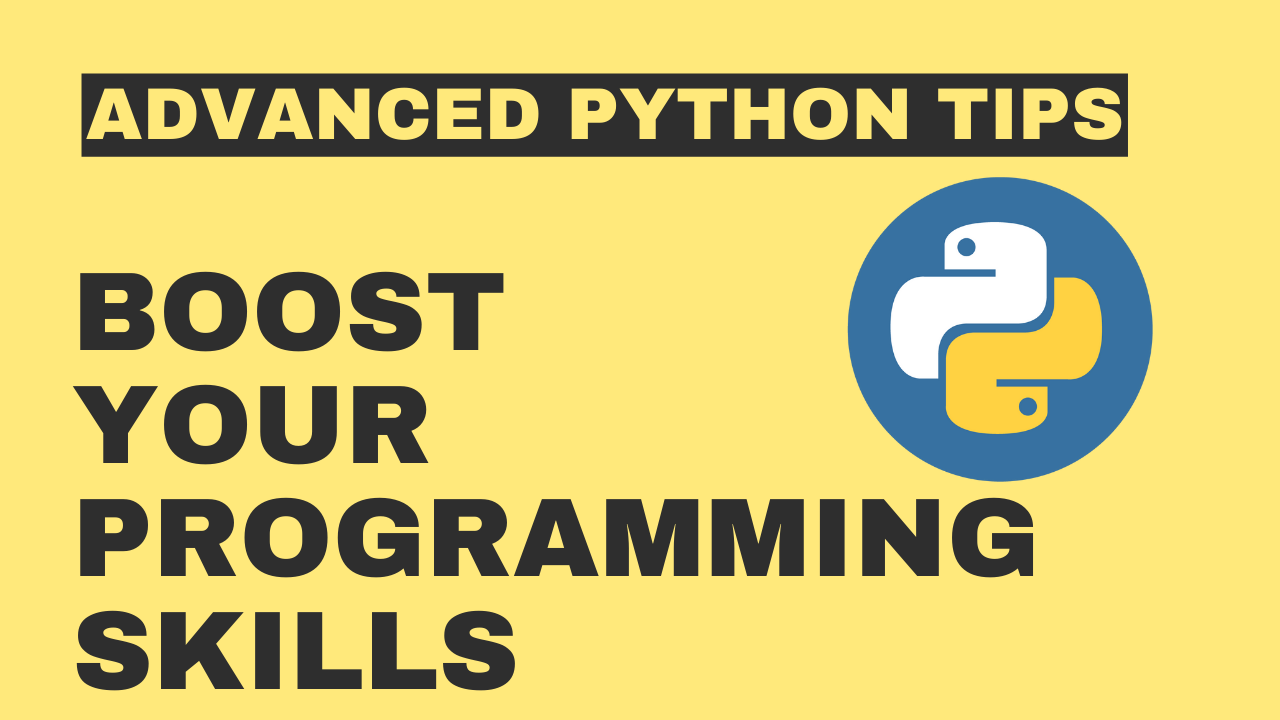In this blog post, we'll delve into various advanced techniques that will streamline your coding process and make you a more efficient Python programmer.
Introduction
Python programming has garnered immense popularity in recent years due to its simplicity and versatility. However, mastering advanced Python tips and tricks can elevate your coding skills to a whole new level, enabling you to tackle complex problems with ease.
Comparisons: Traditional vs Advanced Python Techniques
Traditional Approaches
- Often rely on verbose code structures.
- May lack efficiency and readability.
- Limited capabilities in handling complex tasks.
Advanced Techniques
- Embrace concise and elegant coding styles.
- Optimize performance and memory usage.
- Enable handling of intricate problems effortlessly.
Exploring Advanced Python Tips
Efficient Data Manipulation with List Comprehensions
List comprehensions offer a concise and efficient way to manipulate lists in Python. Instead of using traditional loops, list comprehensions allow you to create lists based on existing lists, resulting in cleaner and more readable code.
Example:
# Traditional approach
squares = []
for x in range(10):
squares.append(x**2)
# Using list comprehension
squares = [x**2 for x in range(10)]Pros:
- Concise syntax reduces code clutter.
- Improves code readability.
- Often results in better performance compared to traditional loops.
Cons:
- May be challenging for beginners to understand initially.
Mastering Python Generators for Memory Efficiency
Generators are a powerful tool for handling large datasets with limited memory resources. By yielding values one at a time, generators enable efficient memory management and lazy evaluation.
Example:
# Generator function
def squares(n):
for i in range(n):
yield i**2
# Using generator
square_gen = squares(10)
print(next(square_gen)) # Output: 0
print(next(square_gen)) # Output: 1Pros:
- Saves memory by generating values on-the-fly.
- Suitable for processing large datasets.
- Facilitates lazy evaluation, improving performance.
Cons:
- May not be intuitive for beginners.
Harnessing the Power of Decorators for Code Reusability
Decorators allow you to modify or extend the behavior of functions or methods in Python. They are particularly useful for implementing cross-cutting concerns such as logging, authentication, and caching.
Example:
# Decorator function
def logger(func):
def wrapper(*args, **kwargs):
print(f"Calling function {func.__name__}")
return func(*args, **kwargs)
return wrapper
# Applying decorator
@logger
def add(a, b):
return a + bPros:
- Promotes code reusability and modularity.
- Enhances code readability by separating concerns.
- Facilitates aspect-oriented programming.
Cons:
- May introduce overhead in function call overhead.
Advanced Techniques for Problem-Solving
Understanding Context Managers for Resource Management
Context managers provide a convenient way to manage resources, such as files or network connections, by automatically releasing them when they are no longer needed.
Example:
# Using context manager with file
with open('example.txt', 'r') as file:
content = file.read()
print(content)Pros:
- Ensures proper resource cleanup.
- Enhances code readability by encapsulating resource management logic.
- Reduces the risk of resource leaks.
Cons:
- Limited to use cases involving resource management.
Utilizing Python's Collections Module for Specialized Data Structures
The Collections module in Python offers specialized data structures beyond the built-in types like lists and dictionaries. These data structures are optimized for specific use cases and can improve the efficiency of your code.
Example:
from collections import defaultdict
# Using defaultdict to count occurrences of elements in a list
colors = ['red', 'blue', 'green', 'red', 'yellow', 'blue']
color_count = defaultdict(int)
for color in colors:
color_count[color] += 1
print(color_count)Pros:
- Provides efficient data structures for various scenarios.
- Enhances code clarity by using appropriate data structures.
- Optimizes performance in specific use cases.
Cons:
- Requires understanding of specific data structure implementations.
Example: Application in Real-world Scenarios
Imagine you're working on a data analysis project where you need to process a large dataset containing millions of records. By applying advanced Python techniques like generators and efficient data structures, you can significantly improve the performance and memory usage of your code, allowing you to analyze the data more effectively.
FAQs (Frequently Asked Questions)
What are the prerequisites for learning advanced Python tips and tricks?
Familiarity with basic Python syntax and concepts is essential. Additionally, a solid understanding of data structures and algorithms can be beneficial.
Can beginners benefit from exploring advanced Python techniques?
Yes, beginners can benefit from learning advanced Python techniques as they offer insights into writing more efficient and maintainable code. However, it's advisable to master the fundamentals before delving into advanced topics.
Are there any risks associated with adopting advanced Python methods?
While advanced Python techniques can improve code efficiency and readability, they may also introduce complexity, which could lead to bugs if not used properly. It's important to understand the nuances of each technique before implementation.
How can I stay updated with the latest advancements in Python programming?
Staying active in the Python community through forums, blogs, and attending conferences or meetups can help you stay informed about the latest advancements in Python programming.
Are there any online resources or courses available for mastering advanced Python concepts?
Yes, there are numerous online resources and courses available, including platforms like Coursera, Udemy, and Codecademy, offering comprehensive tutorials on advanced Python topics.
Can I use advanced Python techniques in my existing projects without major refactoring?
It depends on the complexity of your existing codebase and the compatibility of the advanced techniques with your project requirements. In some cases, integration may require refactoring, while in others, it can be seamlessly incorporated.
Are there any common pitfalls to avoid when implementing advanced Python tips?
Common pitfalls include overusing advanced techniques where simpler solutions suffice, neglecting to consider performance implications, and failing to thoroughly test the code.
What are some recommended practices for testing code that incorporates advanced Python techniques?
Unit testing and integration testing are essential for ensuring the correctness and robustness of code utilizing advanced Python techniques. Mocking and dependency injection can also be helpful in isolating components for testing.
How do advanced Python techniques contribute to cleaner and more maintainable code?
Advanced Python techniques promote code reusability, modularity, and encapsulation, which are key principles of clean and maintainable code. They also encourage the use of best practices and design patterns, leading to more structured codebases.
Can I combine traditional and advanced Python approaches in my projects?
Yes, it's common to use a combination of traditional and advanced Python approaches in projects, especially when transitioning from legacy codebases to modern practices. This allows for gradual adoption and minimizes disruption to existing workflows.
Conclusion
Mastering advanced Python tips and tricks is not just about writing code; it's about becoming a more efficient and
effective programmer. By incorporating these techniques into your workflow, you can streamline your coding process, optimize performance, and tackle complex problems with confidence. Start experimenting with these advanced techniques today and unlock the full potential of Python programming!
We hope you found this blog post informative and insightful. Have you tried any of these advanced Python techniques before? Share your experiences and thoughts in the comments below!



Write a comment